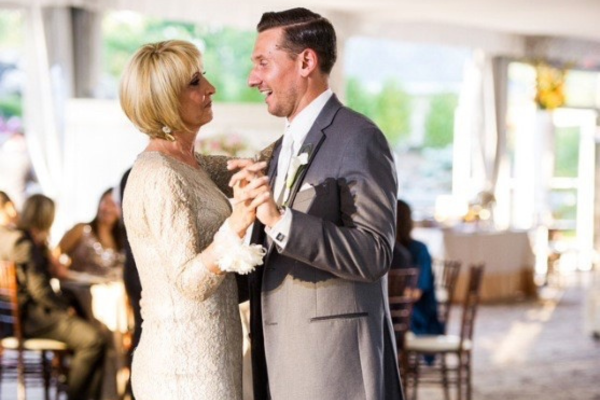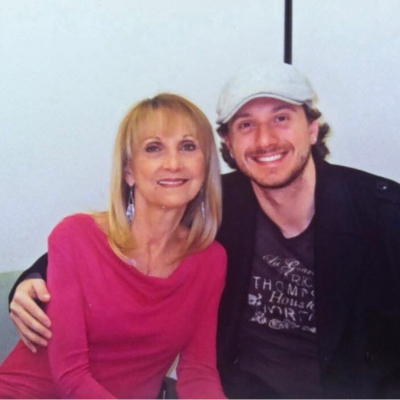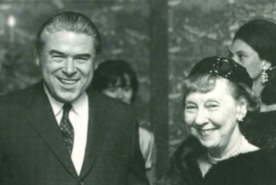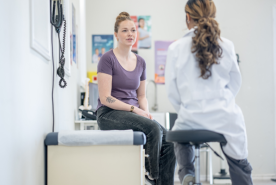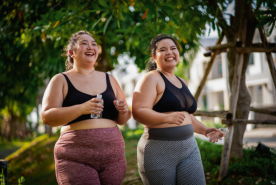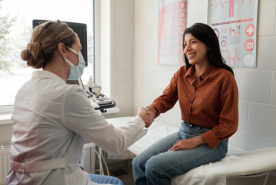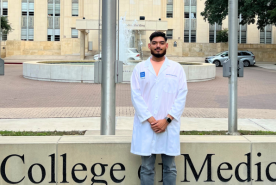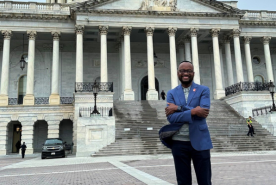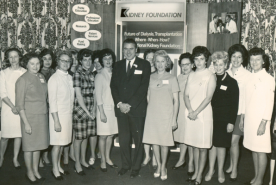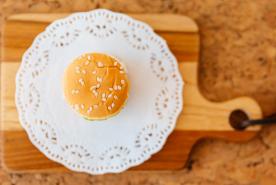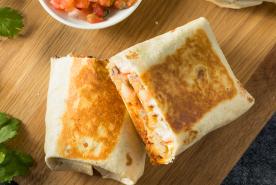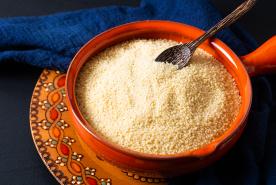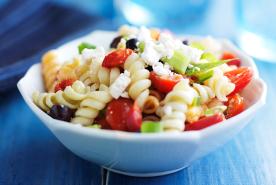April 15, 2025
David Pirozz saved his mother’s life by donating a kidney to a stranger in a paired exchange. More than a decade later, he faced an even greater challenge—accepting her decision not to start dialysis after her transplanted kidney failed.
Today, David is sharing his story to honor her memory and raise awareness about the life-changing impact of kidney donation.
A Paired Kidney Exchange
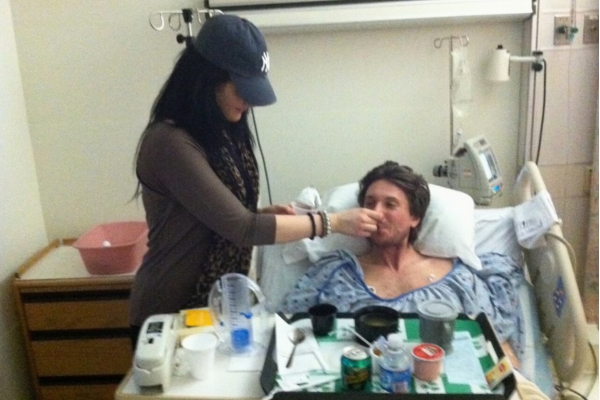
In 2010, David’s mother, Barbara Ann, had surgery to remove a cyst next to her heart. While the surgery went well, it also revealed another health issue–polycystic kidney disease (PKD).
“PKD is a genetic condition that causes cysts to grow on the kidneys,” David said. “My mother was diagnosed too late and began dialysis shortly after. My father went through the donor transplant evaluation but wasn’t a good candidate because he has hepatitis C.”
As an only child, David felt called to get tested next.
“The first step was determining whether or not I had PKD,” said David. “I went to my healthcare practitioner and began testing. It took a few months, but they confirmed I didn’t inherit it.”
But David couldn’t start the kidney donor evaluation quite yet.
“I was struggling with mental health problems and addiction. I went to rehab so I could go through the kidney donor evaluation,” David said. “It took time, but after I was clean and my mental health improved, I began the kidney evaluation.”
The kidney donor evaluation involves:
- Lab work, including blood and urine samples
- A medical and surgical history
- A physical exam
- A psychosocial exam including mental and social well-being
- Imaging, including an X-ray, CT scan, and kidney scan
Hear about the living donor evaluation from someone who donated.
“I was approved as a direct match. The surgery was scheduled for March 14, 2012,” David said. “But doctors discovered my mother’s antibodies spiked during pre-surgery testing. It meant I was no longer a direct match.”
The rise of antibodies meant that Barbara Ann’s immune system would recognize David’s kidney as a foreign object and immediately attack it.
“Luckily, I matched a stranger in another state. The stranger’s potential donor matched my mother,” David said. “The stranger and I both donated in a paired exchange, swapping recipients.”
Barbara Ann recovered from surgery quickly. It was a bit trickier for David.
“Due to my past, I was adamant about not using pain medications. This made recovery more difficult but not impossible,” said David. “The pain was worth it, though. Both our lives changed for the better.”
Transplant doctors give donors pain blockers, which numb the area around the incision site. This helps reduce pain and lessens the need for pain medicine after surgery.
NKF is here to support you whether you're exploring treatment options, considering kidney donation, or need a transplant. Explore our free videos at The Kidney Learning Center to take the next step in your journey.
Subscribe today!
Join the NKF Blog Newsletter
Get inspirational stories and kidney disease resources delivered to your inbox every month. You'll gain practical insights and expert advice to help you better understand and manage your kidney health, no matter where you are on your kidney journey.
A New Health Challenge
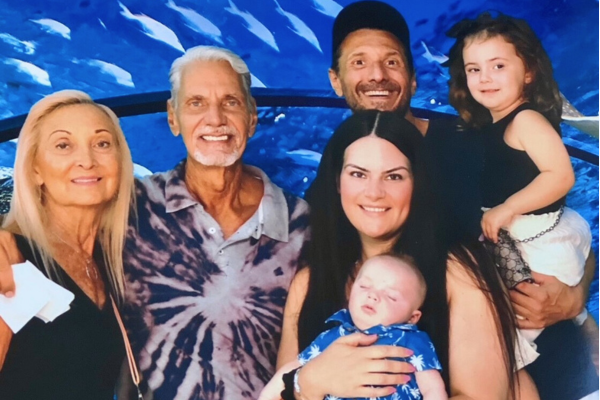
For over a decade, Barbara Ann thrived. She watched David get married and met her grandchildren.
Then, she caught COVID-19 in September 2023.
“COVID-19 hit her hard. She developed Atypical HUS,” said David. “This damaged the transplanted kidney, and she went into kidney failure.”
Atypical HUS occurs when the immune system attacks the body instead of protecting it. The attack causes tiny blood clots to form in small blood vessels, especially the kidneys. As the clots build up, blood flow is blocked, damaging organs.
“The doctors proposed a treatment plan that only gave her a 10% chance of saving the kidney,” David said. “In the meantime, she’d have to start dialysis again.”
Barbara Ann immediately rejected this option because she didn’t want to go back on dialysis.
“My dad thought that she wasn’t thinking clearly because of how sick she was. I tried talking her into taking treatment. At first, she agreed,” David said. “The next day she changed her mind.”
David and his father asked for a psychological exam to ensure Barbara Ann was capable of making this difficult decision. They confirmed she was.
"She was of sound mind, so I had to accept her decision. I couldn't save her this time,” said David. “It’s not that dialysis is bad. But getting treatment every other day, trying to work, and taking massive amounts of medication—it was a lot. Her quality of life wasn’t going to be the same.”
While it was difficult to accept her choice, David is thankful he had the opportunity to ask her questions before she passed away on November 13, 2023.
"I learned what she wanted me to do, what she loved, and what she wanted me to pass down to my children,” David said. “The time we had was a gift. A lot of people don’t get the chance to have those conversations. But I did.”
A Mother’s Legacy
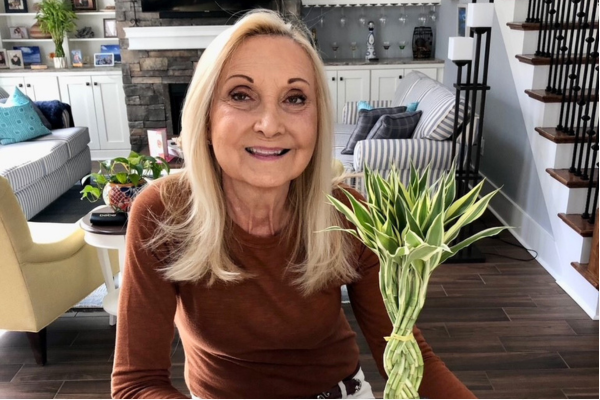
David has looked up to his mother since childhood.
“My mother worked in cosmetics her entire life. As a kid, I watched her launch products and build her career,” David said. “Now, I’m a global director at the same company, taking the same commute she once did. She set me on this path, and I love what I do—I feel like I’m walking in her footsteps.”
Now, David is honoring Barbara Ann’s memory in another way–by sharing her story and spreading awareness about organ donation.
“My mom always believed everything happens for a reason. Her kidney disease led me to turn my life around and end my addiction. It led me to donate a kidney, saving not just her life but a stranger’s too,” David said. “It led me to keep her story alive and encourage others to learn more about kidney donation and kidney disease.”
Because for David, being a kidney donor was life-changing in the best way possible.
“If you feel called to donate, I can’t recommend it enough. I live a completely healthy life, with just one small change—I avoid NSAID pain relievers,” David said. “A few months after surgery, you forget you have one less kidney. The person who received it gets a second chance at life.”
Want to speak with someone who has already donated a kidney? Connect with an NKF Peer mentor today.
